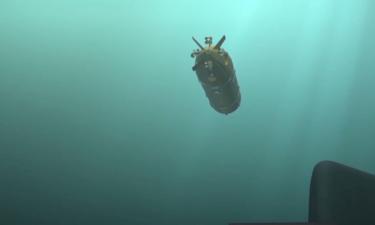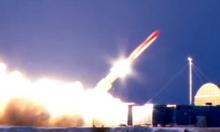Iranian president in Damascus to strengthen union with Syria
Iranian President Mahmoud Ahmadinejad began a visit to Syria Thursday to consolidate an old alliance made increasingly crucial as both countries face mounting U.S. pressure and the threat of international sanctions. Iran's standoff with the West over its nuclear program and the threat to refer it to the U.N. Security Council as well as Syria's own troubles over a U.N. investigation that implicated it in the assassination of a Lebanese politician were expected to figure high in the talks between Ahmadinejad and Syrian President Bashar Assad.
Bilateral economic, industrial and cultural agreements also will be discussed during the two-day visit. Syria is Iran's closest Arab ally. The two countries have had close relations since 1980 when Arab Syria sided with Persian Iran against Iraq, a fellow Arab nation, in the 1980-88 Iran-Iraq border war.
On the eve of the visit, Ahmadinejad described bilateral relations as "strong and good." Both countries share to a certain extent similar foreign policy objectives: opposition to what they describe as U.S. attempts to dominate the Middle East, hostility toward Israel and support for Palestinian and Lebanese militant groups fighting the Jewish state.
Ahmadinejad's visit comes at a very delicate time for both nations and recent events made strengthening ties all the more necessary. Iran's insistence to proceed with its peaceful nuclear activities have raised great concern in the European Union and the United States, which have been pushing for a referral of the issue to the U.N. Security Council, a first step toward possible sanctions.
Syria faces international accusations of failing to fully cooperate with the U.N. investigation into last year's assassination of former Lebanese Premier Rafik Hariri. The probe has implicated Syrian officials and now wants to interview Assad and his foreign minister. Damascus has denied any role in the Beirut bombing.
Syria sits on the 35-nation Board of Governors of the International Atomic Energy Agency, which meets on Feb. 2 for a vote to refer Tehran to the Security Council. Its support of Tehran is sure to bolster the ranks of countries opposed to the decision to refer Iran to the Security Council over its nuclear activities.
Ahmadinejad on Wednesday accused the West of acting like the "lord of the world" in denying his country peaceful use of nuclear energy. But the United States and other countries are suspicious that Iran was planning on develop nuclear arms, reports the AP. N.U.
Subscribe to Pravda.Ru Telegram channel, Facebook, RSS!




